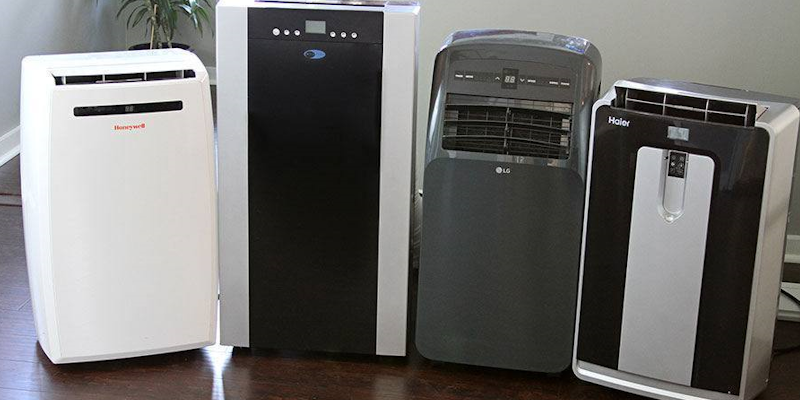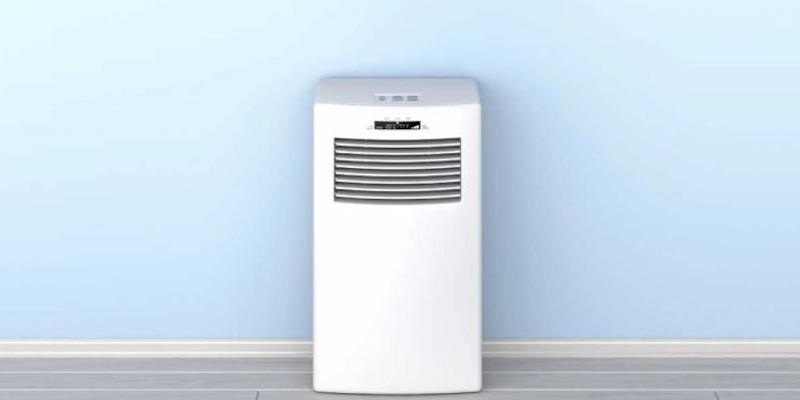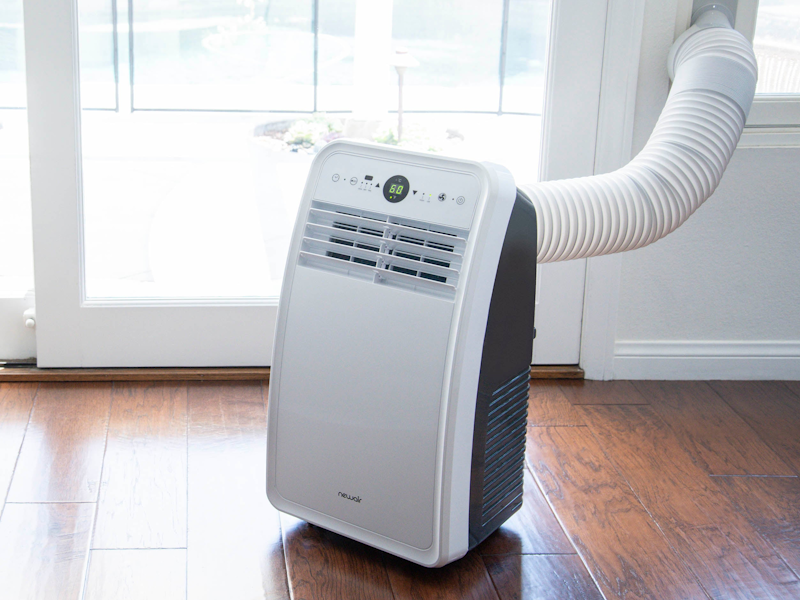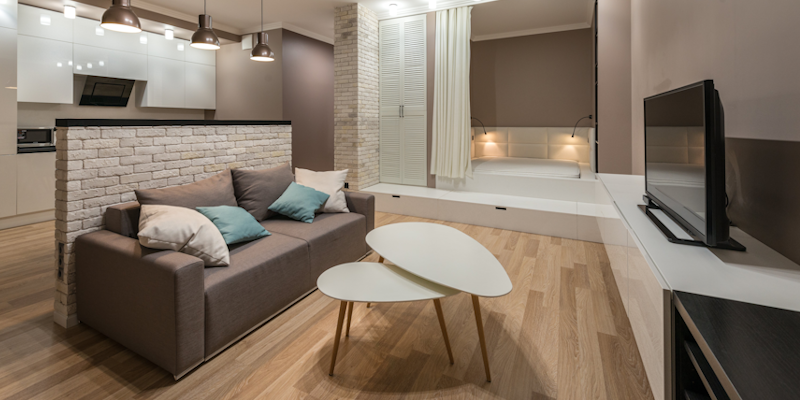
As temperatures rise, staying cool becomes a top priority for many individuals and families. In the world of air conditioning, there are several options to choose from, including traditional central AC units, ductless mini-split systems, window air conditioners, and two intriguing alternatives: ventless and portable air conditioners. In this comprehensive guide, we’ll delve into the world of ventless and portable air conditioners, exploring their features, benefits, limitations, and considerations to help you make an informed decision about your cooling needs.
Understanding Ventless Air Conditioners
Ventless air conditioners, often referred to as portable air coolers or evaporative air coolers, provide a unique approach to cooling indoor spaces. Unlike traditional air conditioners that rely on refrigerants and compressor-based cooling, ventless air conditioners utilize a different cooling mechanism called evaporative cooling.
Ventless air conditioners work by drawing in warm air from your surroundings, passing it through a moistened evaporative cooling pad or filter, and then releasing the cooled air back into the room. The key principle behind this process is evaporation, which has a cooling effect. Here’s how it works:
Ventless air conditioners start by pulling warm air from the room through a fan. This warm air then passes through a cooling pad or filter that is kept moist, causing the air to lose heat through the evaporation process. Finally, the now-cooled air is released back into the room, reducing the temperature and increasing humidity slightly.
Ventless air conditioners are most effective in dry, low-humidity climates where the cooling effect of evaporation can be quite noticeable.
Advantages of Ventless Air Conditioners

Ventless air conditioners offer several advantages that make them appealing to many consumers.
Energy Efficiency
One of the primary benefits of ventless air conditioners is their energy efficiency. These units consume less electricity compared to traditional AC units, resulting in lower energy bills and reduced environmental impact.
Eco-Friendly Operation
Ventless air conditioners use water as a coolant instead of ozone-depleting refrigerants commonly found in conventional systems. This environmentally friendly approach contributes to a more sustainable and responsible cooling solution.
Portability and Mobility
The compact and lightweight design of ventless air conditioners makes them highly portable. You can easily move them from one room to another, providing cooling precisely where it’s needed, giving you the flexibility to adapt to changing circumstances.
Cost-Effective Operation
Operating ventless air conditioners is cost-effective, as they consume less electricity and use water as a coolant. Their efficient operation helps reduce your overall cooling costs.
Easy Installation
Ventless air conditioners are relatively easy to install. They typically require only a power source and a water supply, which simplifies the setup process, making them accessible even for those with limited technical expertise.
Humidifying Effect
In addition to cooling, ventless air conditioners introduce a slight increase in humidity into the air. This can be advantageous in extremely dry conditions, providing comfort and relief from overly dry air.
Ventless air conditioners are a practical and environmentally responsible choice for cooling in the right conditions. They are energy-efficient, cost-effective, and highly portable, offering an eco-friendly approach to staying comfortable in hot weather.
Limitations of Ventless Air Conditioners
While ventless air conditioners offer numerous advantages, they also come with some limitations:
Climate Dependence: Ventless air conditioners are most effective in low-humidity environments. In humid climates, their cooling effect is limited.
Limited Cooling: They may not provide the same level of cooling as traditional air conditioners, which can be a drawback during extremely hot weather.
Regular Maintenance: These units require regular cleaning and maintenance to prevent mold or bacterial growth in the water reservoir.
Noise: Some ventless air conditioners can be noisy due to the fan and pump operation.
Limited Coverage: They are best suited for cooling smaller spaces and may not be sufficient for larger rooms or open floor plans.
Understanding Portable Air Conditioners

Portable air conditioners, as the name suggests, are standalone units designed to cool specific areas or rooms. Unlike central air conditioning systems, which cool an entire house, portable AC units offer targeted cooling in the area where they are placed.
Portable air conditioners operate on a refrigeration cycle similar to traditional window or central AC systems. The key components of a portable AC unit include:
Evaporator: This component cools the air and removes humidity.
Compressor: The compressor pressurizes and circulates the refrigerant.
Condenser: The condenser releases heat outside.
Exhaust Hose: This hose expels warm air and moisture outside through a window or vent.
Fan: A fan inside the unit circulates the cool air.
Control Panel: The control panel allows you to set the desired temperature and fan speed.
Remote Control: Many portable AC units come with a remote control for convenience.
Advantages of Portable Air Conditioners
Portable air conditioners offer a range of advantages that cater to diverse cooling needs.
Versatility
These units are highly versatile, allowing you to cool different areas as needed. Whether you’re moving from the living room to the bedroom or from room to room, portable air conditioners offer flexibility, ensuring that you can stay comfortable wherever you are in your home.
Ease of Installation
Setting up a portable air conditioner is a straightforward process. Typically, all that’s required is access to an electrical outlet and a window or vent for the exhaust hose. This simplicity makes them ideal for renters or anyone looking for a hassle-free cooling solution.
Effective Cooling Power
Despite their compact size, portable air conditioners are designed to effectively cool small to medium-sized rooms. They can maintain consistent temperatures in their designated areas, ensuring a comfortable indoor environment.
Dehumidification
Many portable AC units have the added benefit of dehumidification. In addition to cooling the air, they remove excess moisture, making them particularly useful in areas with high humidity. This dual functionality enhances your overall comfort.
Energy Efficiency
To help manage energy consumption, many portable air conditioner models are designed to be energy efficient. While they may contribute to increased energy bills compared to some other cooling options, they are generally more efficient than central air conditioning systems.
No Permanent Installation
Unlike central air conditioning systems or window units, portable air conditioners don’t require permanent installation or extensive modifications to your home. This makes them an attractive choice for those who prefer a flexible cooling solution without the commitment of significant home alterations.
Portable air conditioners offer adaptable, energy-efficient cooling options for various room sizes and layouts. Their ease of installation, versatility, and dehumidifying capabilities make them a practical choice for those seeking effective and convenient cooling in their living spaces.
Limitations of Portable Air Conditioners
While portable air conditioners offer many benefits, they also have some limitations:
Noise: Portable AC units can be noisy due to the compressor and fan operation.
Limited Coverage: They are best suited for single rooms or small areas and may not effectively cool larger spaces.
Exhaust Hose: The need for an exhaust hose to expel hot air limits the unit’s positioning options, and the hose can be unsightly.
Energy Consumption: While more energy-efficient than some other AC options, they can still contribute to higher energy bills.
Maintenance: Regular cleaning and maintenance are required to ensure the unit operates efficiently and to prevent clogs in the exhaust hose.
Which Air Conditioner is Right for You?

The choice between ventless and portable air conditioners depends on your specific needs and circumstances. Consider the following factors when making your decision:
Climate: If you live in a dry, low-humidity climate, a ventless air conditioner may be effective for you. However, in more humid environments, a portable air conditioner may be a better choice.
Room Size: Assess the size of the room you need to cool. Portable air conditioners are better suited for larger areas, while ventless units are more appropriate for smaller spaces.
Portability: If you require flexibility and the ability to move the cooling unit from room to room, a portable air conditioner is a better choice.
Installation: Consider your willingness and ability to install a unit that requires venting (portable AC) or one that simply requires a power source and water (ventless AC).
Budget: Compare the cost of the units, as well as their operating expenses, to determine which option fits your budget.
Conclusion
Ventless and portable air conditioners offer unique cooling solutions for a variety of needs. While ventless air conditioners are energy-efficient and environmentally friendly, they are most effective in low-humidity environments. On the other hand, portable air conditioners provide versatility and targeted cooling for rooms of varying sizes.
As you make your decision, it’s essential to evaluate your specific climate, room size, and budget. Both types of air conditioners have their advantages and limitations, so choosing the right one will ultimately depend on your individual cooling requirements and preferences. With the information provided in this guide, you can confidently select the best option to keep your living space comfortably cool during the hot summer months.
FAQ’S
Are ventless air conditioners suitable for all climates?
Ventless air conditioners are most effective in dry, low-humidity climates. In areas with high humidity, their cooling efficiency can be limited. It’s essential to consider your local climate when deciding whether a ventless air conditioner is the right choice for your cooling needs.
Can I use a portable air conditioner in a larger room?
Portable air conditioners are typically designed for small to medium-sized rooms. While they can cool larger spaces to some extent, their cooling capacity is more limited in comparison to central air conditioning systems. It’s important to choose a portable AC unit that matches the size of the room you intend to cool for optimal performance.
Do portable air conditioners require a window or vent for the exhaust hose?
Yes, most portable air conditioners require a window or vent for the exhaust hose to expel warm air outside. The exhaust hose is a critical component that helps maintain the unit’s cooling efficiency. Some portable AC models come with window installation kits to facilitate this process.
Are there any safety concerns associated with ventless air conditioners?
Ventless air conditioners are generally safe for indoor use. However, it’s crucial to perform regular maintenance, including cleaning the cooling pads and filters, to prevent mold or bacterial growth in the water reservoir. Additionally, as with any electrical appliance, following safety guidelines and instructions in the user manual is advisable to ensure safe operation.
